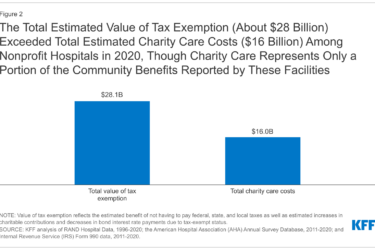
We’ve put up a tip sheet and written about the King v. Burwell case, but now that the ruling is imminent, we wanted to bring one more good one-stop-shopping resource to your attention and share a few tips.
The Alliance for Health Policy has issued a very good four-page tool kit – links to background articles, think tank papers, issue briefs and lots of sources. One caveat – it says that 7.5 million are subsidized in the affected states but the most recent government numbers are 6.4 million.
Other things to remember
There are 37 states using HealthCare.gov (with Hawaii, soon 38). But the reason you keep reading that 34 states are affected is that 34 are federal exchanges.
Three (plus Hawaii) are technically state exchanges but are using HealthCare.gov technology to enroll people. New Mexico had started setting up an exchange, but realized it couldn’t pull it off successfully. Oregon and Nevada did start exchanges – but they were a mess and didn’t get fixed, so the state continues to govern and operate part of the exchange. But they use the federal website and technology to actually sign people up.
Of the 34 remaining states, two – Delaware and Pennsylvania – have laid out preliminary plans to switch to a New Mexico-like model of a state exchange. There are a lot of hurdles, including political ones, but the two states have gotten a preliminary go-ahead from the Centers for Medicare & Medicaid Services. Depending on what kind of timetable the court lays out (if it rules for King) the states may still have a subsidy gap because it will take time to create a state-based exchange, even without the technology.
The timetable also is a mystery (if subsidies are struck). Typically the court’s order would go into effect in 25 days, but this isn’t a typical case and the court might lay out a slower transition period.
One last note – this is not a constitutional case, it’s about interpreting the law. So the court isn’t deciding whether the ACA is constitutional or not. And while loss of subsidies would badly damage the law, it’s not a repeal or a full strike down.
Previous coverage
- Covering how King v. Burwell decision could affect subsidies
- HuffPost dives into public records on King v. Burwell
- Understanding, explaining primary issues of King v. Burwell
- Experts make some predictions about SCOTUS ruling
- The ACA and patient satisfaction: Does it improve care?
- Conference panel generates ACA resources, story ideas
- Reporters offer state, local story ideas for covering ACA
- SCOTUS: Some things to note as we wait for a decision
- Experts weigh in on covering the SCOTUS challenge
- State waivers and the next Supreme Court ACA challenge
- Breaking down court rulings on Affordable Care Act subsidies
- Five common mistakes to avoid on the health policy beat









